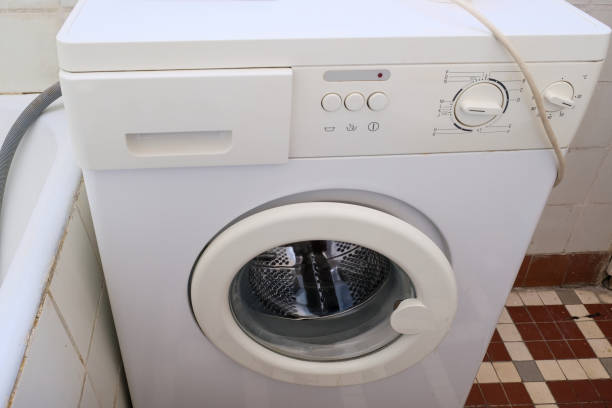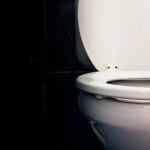Have you ever noticed that your washing machine smells worse after you’ve given it a thorough clean? This frustrating issue is not only perplexing but can also make your freshly laundered clothes seem less than appealing. The main topic we’re diving into today is the puzzling problem of washing machines exuding musty smells or even worse odors after a cleaning cycle has finished. You would expect your washer to smell fresh, but sometimes, that’s far from the case. Let’s explore why this happens and what you can do to ensure your appliance is as fragrant as a spring meadow.
Understanding the Source of the Smell
Firstly, we must recognize that foul odors from washing machines could stem from several sources before panicking and calling cleaning services. Mold and mildew buildup is one of the worst-smelling culprits, especially prevalent in front-loading washers where washer doors seal tightly, leaving no room for the moisture to escape. Trapped debris or leftover water in seals and gaskets might also contribute to the stench, creating a breeding ground for bacteria. Sometimes, a well-meaning user might not realize that overusing detergent or fabric softener could cause a residue that festers unpleasant smells. Lastly, poor drainage or improper ventilation can lead to smells that not only linger but could also get even worse after a cleaning cycle.
| Common Causes of Washing Machine Odors |
|---|
| Mold and Mildew Buildup |
| Trapped Debris in Seals/Gaskets |
| Excessive Detergent/Fabric Softener |
| Drainage or Venting Issues |
Identifying the correct cause of the smell is as integral to solving the issue as the troubleshooting itself. This is because your method of cleaning—and the solution—will vary depending on the root cause.

Step-by-Step Guide to Eliminating Odors
- Cleaning Removable Parts Begin with the parts you can remove, such as detergent drawers, fabric softener dispensers, and door seals. These components can harbor residue and stagnant water, leading to a mildew scent. Clean them with a mixture of hot water and vinegar or a suitable mildew cleaner recommended for washing machines. For the hottest cycle, it is advisable to use the hottest water setting, which could help dissolve any waxy buildup more effectively.
- Deep Cleaning the Drum and Filters The drum is the central hub of your washing machine where the hottest wash should occur, known as a service wash. This entails running the machine empty on the hottest cycle with a washing machine cleaner or a DIY mixture of baking soda and vinegar. It’s essential to reach temperatures that purge bacteria and soap scum without damaging the drum.
Conduct regular maintenance to stave off odors. For instance, after every wash, the maintenance includes wiping down the gasket and leaving the door open to air out the interior. Adjusting your use of detergents to ensure you don’t overdo it can prevent buildup that might even transform your laundry room into an olfactory assault zone.
Advanced Troubleshooting Techniques
Despite your best efforts, if the smell persists, it might suggest a more complex issue that could require deeper investigation or even professional attention. While you may need more advanced troubleshooting, like inspecting the hoses or assessing the drainage system, don’t lose hope. Many of these problems are solvable with the right knowledge and sometimes help from a service technician.
By following the above suggestions, your washing machine should start to dispense clothes that smell as good as new. But always be mindful that the road to a perpetually odor-free machine is paved with consistent maintenance. Not all solutions will have immediate effects, and in certain cases, patience might also be required. Remember, the goal is not only to remedy the smells but to create an environment within your machine that will not allow them to return.
Despite meticulous cleaning and following all the steps to keep odors at bay, there are times the smells might simply refuse to go away. This is where advanced troubleshooting steps come into the scene.

Advanced Troubleshooting Techniques
At this juncture, if your washing machine’s scent has not improved, it may be signaling a need for a deeper clean or a mechanical issue that requires expert attention. Consulting with a professional could also provide insight into whether part replacements, such as a new drum or repairs to the drainage system, might be necessary.
One often-overlooked source of odors is the washing machine’s drainage system. A clogged drain or an improperly installed drain hose might prevent water from exiting the machine properly, leading to stagnant water that quickly becomes a breeding ground for bacteria and mold. Performing a routine check on the drain hose to ensure it’s not kinked, clogged, or placed too far down the standpipe could save you from a smelly situation.
It’s also worth noting that hoses and pipes may need to be inspected for wear and tear or blockages that aren’t immediately obvious. Sometimes, what starts as a subtle smell could indicate a slowly developing clog that, if left unattended, might even cause your washer to malfunction or lead to water damage in your home.
If you’re not skilled in plumbing or washer machinery, it’s prudent to call in professional cleaning services or a licensed plumber to tackle these challenges. They can provide a thorough check and resolve the most stubborn of odors that go beyond surface-level issues.
Conclusion
Ridding your washing machine of unpleasant odors after a clean can be challenging, but it’s often achievable with the right approach. Typically, the solution lies in understanding the source of the smell and addressing it with a combination of deep cleaning, regular maintenance, and using the appropriate amount of detergent. In cases where DIY methods fall short, don’t hesitate to seek professional help. A functional and fresh-smelling washing machine is vital not only for your clothes but also for the overall hygiene of your home. The key takeaway is vigilance: keep an eye on potential odor sources and tackle them promptly to ensure your washing machine remains a reliable asset rather than a smelly nuisance.

FAQ
- Q1: Why does my washing machine smell worse after I clean it with bleach?
A1: Bleach is effective for killing bacteria and mold, but if not used correctly, it can leave behind a strong odor. Additionally, if not rinsed out thoroughly, it could react with soap residues or organic matter left in the machine, making the smell even worse. - Q2: What is the hottest wash or ‘service wash’ and how often should I perform it?
A2: A service wash is a cleaning cycle run on an empty washing machine using the hottest water temperature available (usually above 60°C or 140°F) to remove any greasy residues and disinfect the interior. It is recommended to perform a service wash once a month. - Q3: How can I prevent my washing machine from getting smelly in the first place?
A3: Prevention is key; use the correct amount of detergent, leave the door open between washes to dry out the drum, and regularly clear out the filter and any removable parts. Also, do a maintenance or service wash regularly to avoid residue buildup. - Q4: Can home remedies like vinegar and baking soda really eliminate washing machine odors?
A4: Yes, home remedies like vinegar and baking soda can be quite effective in eliminating odors. They work by neutralizing pH levels and killing mildew and bacteria. However, for deep-set odors, you may need to repeat the treatment or combine it with other methods. - Q5: My washing machine is clean, but my clothes still smell musty. What could be the reason?
A5: If your clothes continue to carry a musty smell after a wash, you might need to look at your laundry habits. Overloading the washer, using too much detergent, or leaving wet clothes in the drum for too long after a washing cycle can all contribute to musty-smelling garments. It might also indicate that the washing machine itself still harbors odor-causing bacteria in areas that are not easily cleanable without professional help.


